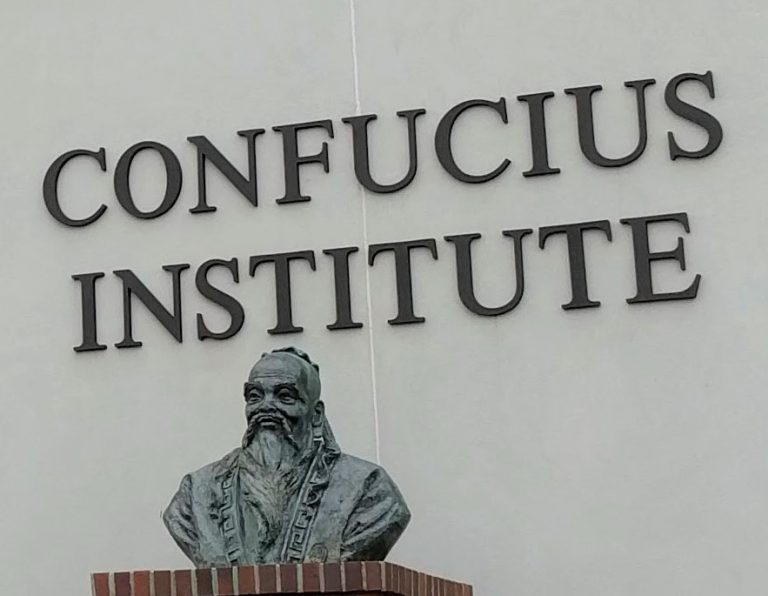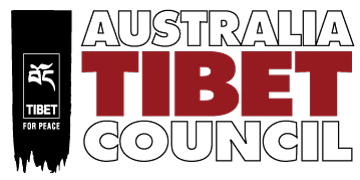Are Confucius Institutes A Security Threat? – Parliamentary Inquiry bets each way

Confucius Institutes are a propaganda arm of the Chinese Communist Party (CCP) masquerading as Chinese language and cultural teaching institutes in universities and schools. Australia Tibet Council (ATC) calls for the closure of Confucius Institutes for several reasons including their involvement in suppressing the discussion of human rights and “sensitive issues” such as Tibet, East Turkestan (CH: Xin Jiang), Tiananmen Square, Taiwan, and Hong Kong on campus. As well as their operation as centre points for the intimidation of students and academics on these issues and ATC’s very strong concerns about Chinese Government influence and interference and CCP control of funding, curriculum, and teaching appointments.
In July 2020, a restructuring and rebranding of Confucius Institutes occurred to try to counter the growing realisation in countries including the US, EU, Germany, UK, Japan, and South Korea of the growing undue malignant influence of Confucius Institutes. They were moved from Hanban (a direct part of the Chinese Government through the Education Department) to an NGO (nominally independent from Government) to counter concerns of government control, however there are no NGOs in China which are not controlled by the Chinese Communist Party (CCP). It is important that this rebranding is recognised as a sham and that it is not used to justify approving CI agreements. ATC has brought this to the attention of parliamentarians and will continue to do so.
ATC is of the clear view that the evidence to the inquiry supports the closure of Confucius Institutes, and we are disappointed that the inquiry did not agree. Confucius Institutes cannot be reformed as shown in the recent rebranding as the CCP simply alters their form and continues unabashed to direct them and ensure that human rights and “sensitive issues” cannot be discussed.
On March 23rd the Parliamentary Committee on Intelligence and Security handed down its report on Security risks in the higher education sector. The inquiry looked at areas where foreign influence and interference could occur, including Confucius Institutes. Universities attempted to downplay the role of China on their campuses however the committee did not agree with them and in some instances, such as University of Queensland, was quite scathing.
Aside from Confucius Institutes there were several important recommendations made relating to the influence of the CCP. Here we focus on those parts of the Inquiry report that relates to Confucius Institutes (Confucius Institutes), as well as the intimidation, harassment and reporting of students to foreign governments. You can read the full inquiry report here.
Confucius Institutes – a wasted opportunity:
It is important to note that Universities were defensive about Confucius Institutes and their overseas student intakes and suggested there was no need to regulate, as an example the University of Melbourne said “‘unnecessary over-regulation of low risk activity’ could lead to a greater risk of inconsistency and systemic oversights,”. We should understand that by “low risk” universities mean Confucius Institutes and the intimidation of students by members of the Chinese Students and Scholars Association directed by the Chinese Embassy and Consulates.
Australia Tibet Council (ATC) is extremely disappointed that the committee did not heed the many strong calls for the closure of Confucius Institutes and decided against the closure of Confucius Institutes in Australian Universities and that it made only a single recommendation that there needed to be greater transparency around the funding of Confucius Institutes, and that Universities need to be able to ‘have a final say” about the appointment of staff, curriculum content. Finally, the report recommends that robust academic freedom and free speech clauses be included in any agreement between the University and Confucius Institutes.
ATC believes there was strong and irrefutable evidence presented in submissions that Confucius Institutes play a central role in suppressing the discussion of human rights and “sensitive issues” such as Tibet, East Turkestan (CH: Xin Jiang), Tiananmen Square, Taiwan, and Hong Kong on campus. This evidence demands that Confucius Institutes be closed.
The report’s recommendations are based on the premise that Confucius Institutes can be reformed. ATC is of the strong belief that Confucius Institutes cannot be reformed and that this has been demonstrated by evidence to the inquiry and the recent rebranding of Confucius Institutes. After the rebranding the CCP continues to control Confucius Institutes and ensure that human rights and “sensitive issues” such as Tibet and East Turkestan (CH: Xin Jiang) cannot be discussed.
ATC does welcome the committee reminding us that the Foreign Affairs minister can exercise veto powers on Confucius Institutes. A generous interpretation is that it is a reminder to the Minister that they have this power and that now they need to use it in relation to Confucius Institutes. ATC calls on the Foreign Minister to urgently utilise this veto power and force the closure of Confucius Institutes around Australia for their chilling impact on human rights discussion and debate.
Other important areas of examination by the inquiry relating to the CCP included the following:
CCP abuse of student’s human rights and a brake on the Chinese Students and Scholars Association (CSSA):
Rather than make direct legislative recommendations the inquiry has set up an inquiry by UFIT to look at on-campus intimidation and the reporting of students to foreign embassies. As with Confucius Institutes, the inquiry had significant information and evidence from submissions as well as direct testimony of intimidation and harassment. ATC calls for the UFIT working group to include students or academics with experience of such intimidation in its consultation in developing further recommendations to government on how to handle this issue.
ATC does welcome the recommendation that calls for publication of an annual report on intimidation, harassment, and censorship from foreign interference, but we will need to be sure that it is not censored for ‘national security’ reasons. ATC supports the new secure student reporting mechanism as a way of protecting student human rights, the involvement of the Department of Home Affairs in helping to create a secure reporting mechanism for students gives reassurance that it will be safe. ATC hopes this will improve students’ ability to discuss human rights and issues such as Tibet in a free and safe way.
CSSA has long been a concern of ATC as it has been the conduit for CCP control of Chinese students on Australian campuses and their role in suppressing discussion and speech on human rights and matters such as Tibet and East Turkestan (CH: Xinjiang). ATC welcomes the recommendation for the Attorney-General’s Department to investigate, and we assume prosecute, cases of foreign student associations not complying with the Foreign Influence Transparency Scheme (FITS). The additional call for the Attorney General’s Department to remind all foreign student associations of the requirements of FITS is also welcome. These recommendations would apply directly to the CSSA which is directed and controlled by the CCP.
However, ATC is concerned that CCP based students and CSSA will simply be more careful about their contact with consulates, the embassy, and their staff. Without assistance from security services universities are unlikely to be able to identify and solve this problem.
A growing area of concern in academic circles has been the intimidation of students, mainly those completing assignments relating to political, human rights, foreign affairs and on matters such as Tibet and Xinjiang, is a call for the ability for anonymous assignment submission. This is progress supported by ATC.
Foreign Diplomats Appointments – CCP Official an example:
There was a slap down to CCP officials and to UQ in the report. In direct response to evidence surrounding the appointment by the University of Queensland (UQ) to an honorary position of Xu Jie, serving Chinese consul general in Brisbane, and his support of violent Chinese student protesters on-campus and attacks on Drew Pavlou, the report was scathing of UQ. ATC welcomes the recommendation that requires that UFIT establish clear policies to prevent this in the future and called on the Attorney General’s Department and the Department of Foreign Affairs and Trade to consider if the issue is adequately addressed by legislation.
A way out for universities? – call it “legitimate foreign influence activities”.
Of significant concern to ATC and based on the way they put together their submissions to the inquiry, University administrations will start to draw from parts of the report, particularly paragraphs 6.12 and 6.3, to avoid taking action against organised CCP students arguing that the intimidatory actions are part of free speech, independent thought and of most concern “legitimate foreign influence activities”. ATC will stay vigilant for reports from students that universities are side stepping the recommendations and using the inquiries’ own language as a way out.
As an example, the University of Queensland was not apologetic and didn’t back away from its defence of its lack of action on the well documented intimidation undertaken by Chinese students on campus. It may be the committee’s way of protecting the activity of Australia’s allies such as the US on Australian campuses.
In summary:
Despite significant evidence in the inquiries report it is allowing Confucius Institutes to remain open with their negative impact on suppressing the discussion of human rights and “sensitive issues” such as Tibet, East Turkestan (CH: Xin Jiang), Tiananmen Square, Taiwan, and Hong Kong on campus. ATC feels that there is no place for the CCP to be dictating terms around public discussion and disclosure of issues relating to Tibet, East Turkestan and CCP human rights abuses in Australian public institutions.
ATC calls on the Foreign Minister to act using the veto powers and close all Confucius Institutes immediately. An alternative exists in the form of offers from Taiwan to properly teach Chinese in Australian universities and schools rather than the truncated simplified form taught by Confucius Institutes. ATC will keep a watching brief and continue to argue for the closure of Confucius Institutes.
ATC welcomes recommendations on intimidation and action against those perpetrating intimidation on-campus. We need to see how the recommendations are implemented and whether the universities follow the guidance from UFIT. The committee itself noted that the products of UFIT were guidance and that the guidelines were not binding on universities indicating that legislation and regulation is required.
